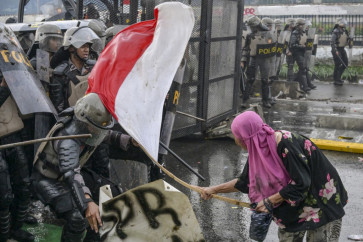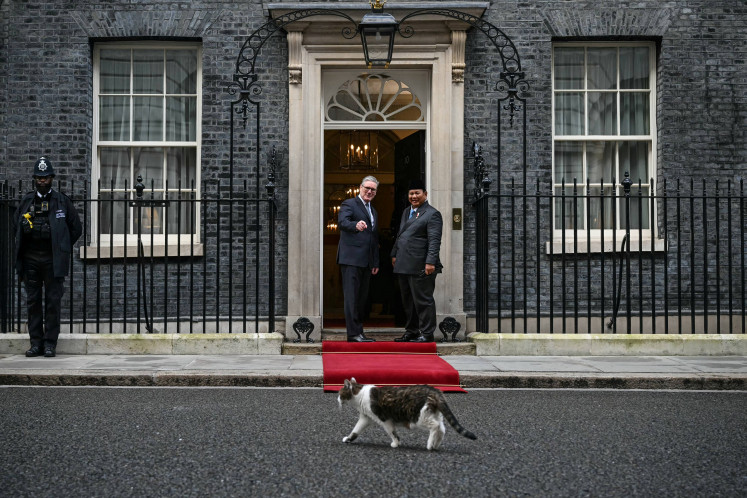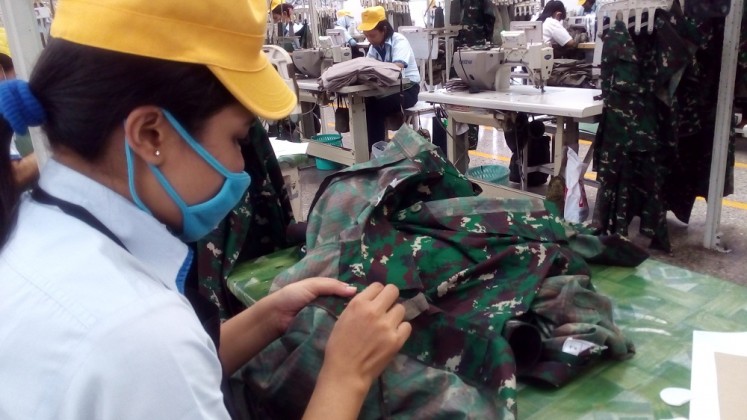Popular Reads
Top Results
Can't find what you're looking for?
View all search resultsPopular Reads
Top Results
Can't find what you're looking for?
View all search resultsA path to a new Iran? Hopefully
Iran recently promised to proceed with a number of democratic measures
Change text size
Gift Premium Articles
to Anyone
I
ran recently promised to proceed with a number of democratic measures. One of them was a reformist approach that had never even been mentioned over the last 30 years.
Of course the economic embargo, isolation and the possibility of a military operation against Iran were all important factors in this move by Tehran.
The language used by Iran's new President Hassan Rohani in his address at the United Nations bore signs of this change. That address ' which began with the words, 'Yes to peace, no to war', in which he stressed they were opposed to all forms of extremism and violence, recognized the Jewish holocaust and ended by referring to common values in the Torah, the Gospels and the Koran ' was highly significant.
His telephone discussion with US President Barack Obama while he was in New York was also greeted positively by the international community and raised the hope that Iran could again be reconciled with the world. President Rohani's emphasis that under no circumstances did Iran ever 'intend to possess weapons of mass destruction' was likely another factor that softened public opinion (www.nydailynews.com).
The Tehran administration favored an agreement that would ease international opinion at the negotiations in Geneva with the P5+1 commission on the subject of transparency in its nuclear programs, the issue of greatest concern to it.
The international community and Iran recently took a historic step on a dispute that had lasted some 20 years because of Tehran's nuclear program. They negotiated a six-month agreement prior to a more comprehensive one.
Despite President Rohani's messages of 'change' in the international arena and the signs of improvement in the economy, Iran could not go further than 'temporary reforms' in regards to human rights issues. In line with his promise to 'improve human rights and release of prisoners of conscience', Rohani introduced an amnesty, included 11 political prisoners. Spiritual leader Ali Khamenei confirmed that 80 people detained in protests after the 2009 elections would also be included in this amnesty.
On the other hand, however, according to some sources, with Rohani's coming to power the number of executions carried out has increased. More than 800 prisoners have been executed in Iran in the last 18 months and 209 of these were done since Rohani assumed office.
Intolerance of freedom of ideas was again revealed by the closure of the newspaper Bahar. UN special rapporteur Ahmed Shaheed wrote that up to 600 journalists had been described as members of a gang 'opposed to the state' and that women were still discriminated against, with 30 female candidates registered against Rohani being disqualified in the June elections, and that 500 human rights defenders were in detention. Shaheed was then promptly banned from entering Iran because of that report.
While the winds of change in Iran seem positive, the real problem is fundamentalism and lovelessness, which is a natural consequence of that. Iran should abandon this policy of hatred and must above all aim to become a 'global center of love'.
It is obvious that steps toward equality between the sexes have been taken in Rohani's early tenure, and three women have been appointed to important official posts; women athletes were also permitted to take part in world championships. On the other hand, however, as the French journalist of Iranian origin Delphine Minoui described in her book Les Pintades á Téhéran- Croniques de la vie des Iraniennes, women in Iran still face significant oppression.
Hooman Majd, an American journalist of Iranian origin and the author of the book The Ayatollah Begs to Differ describes the dullness of social life in Iran: 'Well, everything happens really, I mean, everything interesting happens behind closed doors. You will see people in restaurants, you will see people shopping, but you do not see a very cheerful group of Iranians going about their daily business. People are rather dour, but once they get behind closed doors and they can be free to be themselves, you see a completely different Iranian, I think, because of the social restrictions today. That is how people entertain themselves.'
What Rohani now needs to do is to completely uproot this fundamentalist and oppressive mind-set that lies in the background of limitations in social life and eradicate it from Iran. With such a mind-set, Iran causes the West to perceive Islam as a repressive and introverted system, which is far removed from the truth.
Iran must become a country that enjoys as much freedom of ideas as possible, where people can act on their religious beliefs as they wish, where people who changed their faiths are not tried and imprisoned, where people holding all beliefs are embraced without discrimination, where women are valued and where young people can have an exceedingly modern way of life.
Fundamentalism and the lovelessness left over from the days of the Warsaw Pact also affect daily life in Iran. The lack of soul of the last 60 years is making Iran, with its venerable 6,000-year history, gray and dull.
Iran should be a country where art, culture and beauty meet, that embraces people of all beliefs, which applies the maximum amount of democracy possible and that thrives on love, not hatred.
Iranian towns should attract the whole world with their quality, joy, art and modern life styles and should embody rational and superior virtues where women can be involved in all spheres.
If Iran does this, it will be giving great support to the building of the peace in the Middle East that has been longed for over so many years.
________________
The writer has authored more than 300 books translated in 73 languages on politics, religion and science.










